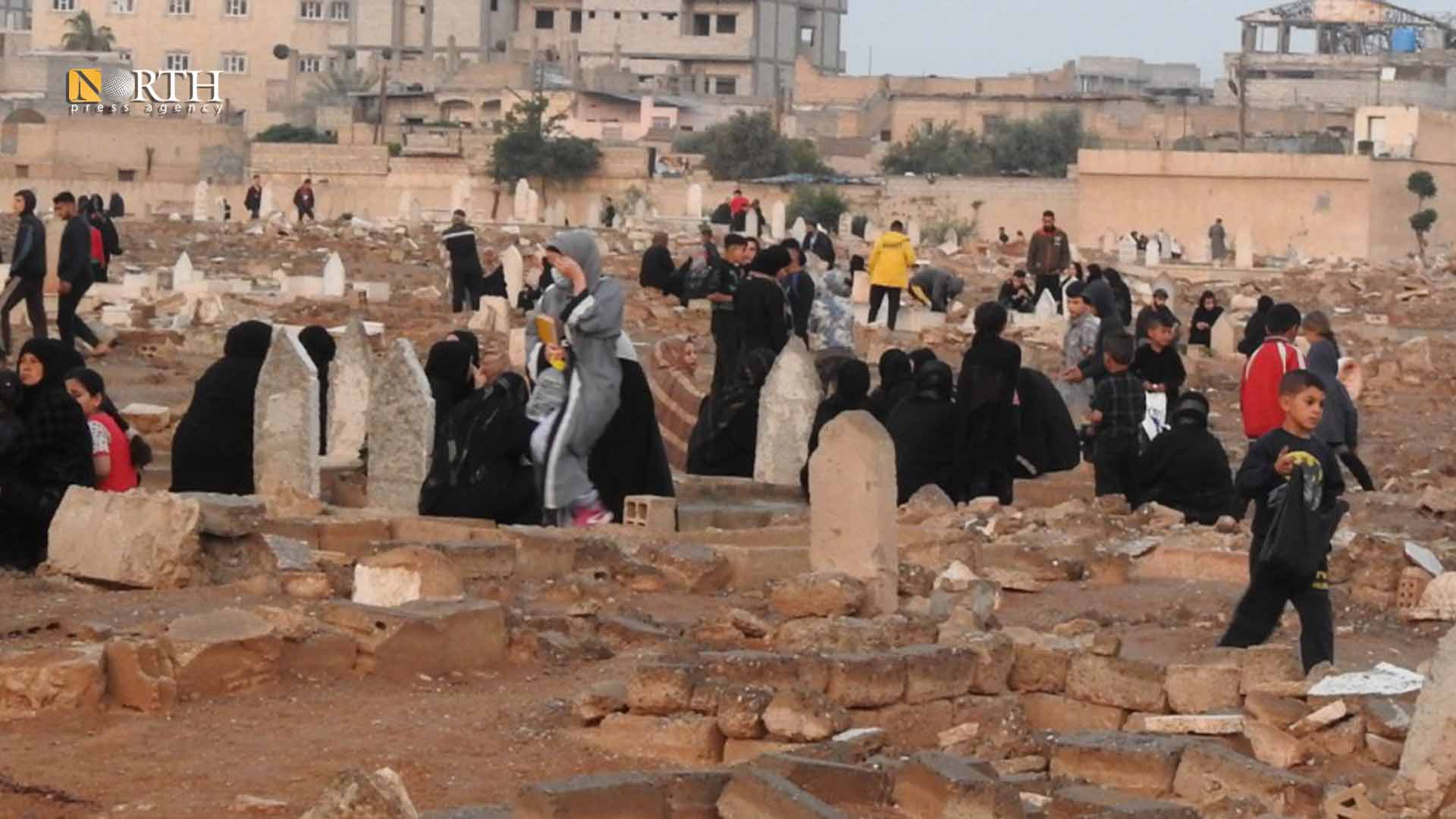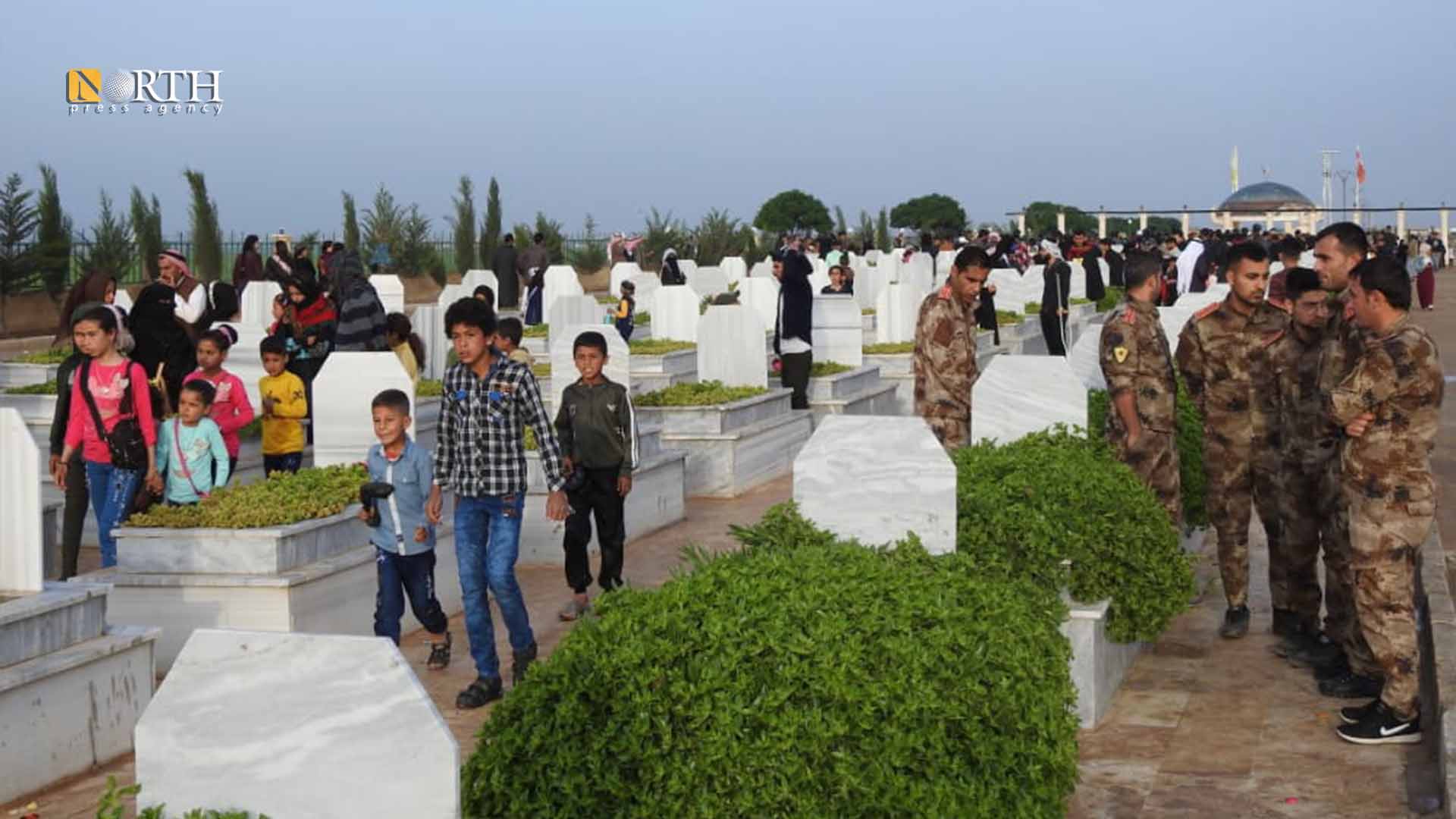RAQQA, Syria (North Press) – Lubna al-Hassan, 36, a resident of the city of Raqqa, north Syria, sits beside the grave of her husband during Eir al-Fitr while burdened with life’s worries.
In the early morning of the first day of Eid al-Fitr, Syrian families visit the graves of their members. This is the most important ritual of the Eid.
Al-Hassan told North Press that every Eid she comes with her 7-year-old twins, Abeer (a girl) and Omar (a boy), to sit at the edge of their father’s grave and tell them stories about him.

In late 2017, the woman’s husband died as a result of the explosion of a mine left behind by ISIS in their house after the latter had left the city.
Al-Hassan looks at her twin with sorrow for their condition after they became orphans, “It is very difficult to lose a father, people look at them as if their wings are broken, and they will not be forced as long as they live.”
She pointed out that the lives of her twin would change a lot if their father was present, because he would do the impossible so that his children do not live any kind of deprivation in such a cruel life.
Ruqayya Sheikh, 10, a girl from Raqqa, prepared her Eid clothes to wear them in the morning and go to show them to her father who was buried in the cemetery of the martyrs.
Ruqayya’s father lost his life about six months ago during clashes that broke out between the Syrian Democratic Forces (SDF) and the armed opposition factions on the outskirts of the town of Ain Issa, north of Raqqa.

Ruqayya has a younger brother (5 years old) whose mother, Salma al-Jassem, 32, takes care of them.
Al-Jassem said that everything in their lives has become “different” after the death of her husband, as the Eid no longer has any meaning, because she lost her breadwinner.
This is the first Eid for the two children without a father. They stand next to their mother, who recites Quranic verses, and they silently cry with her.

